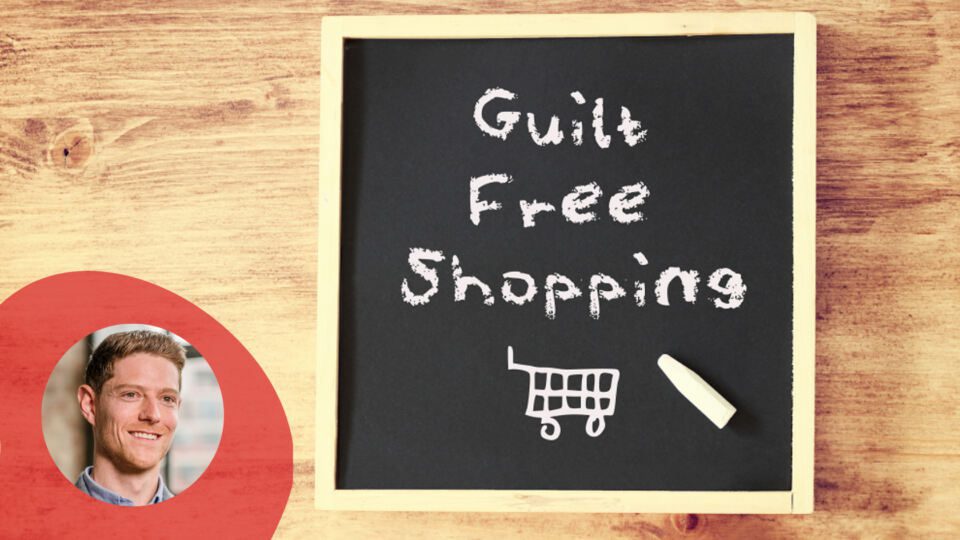It’s never been more important for brands to consider the ethics of the products they create, source and sell. Today, consumers are increasingly interested in how brands do business, whether that’s the origin of their products and materials, testing in cruelty-free ways or employing people for a living wage. In 2022 more than ever, consumers are invested in the ethical position of the brands they buy from, and it shows in the numbers — some 70% of consumers only buy from brands they believe in.
There are two overriding reasons for the rise in conscious consumerism. Today’s news cycles are shorter and quicker than ever before, with news making headlines in minutes. Maybe more importantly, there are more than 4.5 billion active social media users reading, researching, commenting and ingesting information from global sources. The overlap of news organizations making headlines with the relative ubiquity of social media has brought global issues literally into our laps and awakened our collective social consciousness.
The pandemic has played a role too. With more people staying closer to home over the past two years, online purchases have skyrocketed. Along with that, consumers have the time to search for brands that are aligned with their own values, and this is having an important effect on shopping behavior:
- 67% of consumers indicated that they would feel positive toward brands that offered the opportunity to contribute to a charity or initiative aligned with their values
- 83% of millennials want brands to align with them on values
- 81% say yes, ethically produced goods matter to them
So why is it beneficial that merchants show that their brand is a conscious one? In a nutshell, shoppers will connect with the brand on an emotional level. And when they’re emotionally aligned, they’ll return and repeat purchase, helping retailers grow their customer lifetime value.
Here are a few ways retailers should show they’re leaders in the age of conscious consumerism to build brand loyalty long-term.
Authenticity in a Brand
Consumers are aware of performative behaviors that sound good but have little to no positive impact. They are cognizant of when a company falsely gives the impression of environmental advocacy to increase sales. More than ever, shoppers are looking for authentic brands that care about ethical issues. And when they find them, they’ll remain loyal to them long-term.
This is why brands need to be authentic when showing they care about big picture issues alongside providing their product or service.
Whether it’s environmental or social issues, brands should showcase the impact of supporting their preferred philanthropy on social media and across other marketing materials. They could shine a spotlight on the people they’ve helped or post about the number of trees planted on behalf of their customers.
For more authenticity, the conscious initiatives a retailer supports should also inform the brand’s values and overall customer experience. It should become a part of every touch point, from the way their loyalty program operates to how they ship orders.
This authenticity is important for potential and return customers because retailers will be able to show they’re acting on their promises. This builds trust and shows emotional alignment, meaning customers will return to that brand down the line..
Loyalty Programs for Ethical Causes
Another way merchants can share their brand values is to offer loyalty program rewards that support the ethical causes customers care about. They could let shoppers trade in loyalty points for a charitable donation or to plant a tree.
Incorporating ethical rewards in a loyalty program provides customers with the opportunity to support the brand in upholding the issues they care about. The alliance built between brand and consumers is powerful and builds loyalty through shared values.
Brand Advocacy
Creating a positive association to a brand is the link that inspires return customers. Motivating emotionally connected customers to spread the word about a brand with reviews and recommendations to people they know is critical. It’s likely the new customers acquired will be like-minded and will convert quicker. In fact, shoppers who have been referred have a significantly higher conversion rate than through other channels such as paid search and paid social.
When customers provide positive reviews, referrals and social media posts, they also provide independent third-party validation to new customers that a brand is one that advocates for ethical concerns they care about. Giving the referrer and referee incentives will motivate them to recommend, resulting in a growing list of customers.
It’s All About Connection
47% of customers are motivated to be loyal to a store by becoming part of a brand community. Brands that share the same ethical values as their customers create common ground. They can use loyalty programs to establish a circle of like-minded shoppers united by a common cause.
Once customers understand that a brand cares about the same things that they care about, a sense of community is created. This emotional bond will further drive customers to engage and be loyal on more than a transactional level.
The bottom line is that today’s consumers give a resounding thumbs up to brands that care about ethical issues and that put their money where their mouth is by living out those promises. Brands should research what issues are most important to customers and relevant to their products and support those causes. Customers will notice and champion the brand knowing that all parties support the same goal. This bond will encourage customers to revisit a storefront and become loyal customers and brand ambassadors, too.
Charlie Casey is CEO and Co-founder of LoyaltyLion, a data-driven loyalty and engagement platform that powers ecommerce growth. Shown to increase retention and spend, LoyaltyLion is trusted by thousands of fast-growth ecommerce merchants worldwide. Prior to founding LoyaltyLion, Casey joined the Foreign and Commonwealth Office as an Economics Advisor before becoming a consultant at Deloitte.




